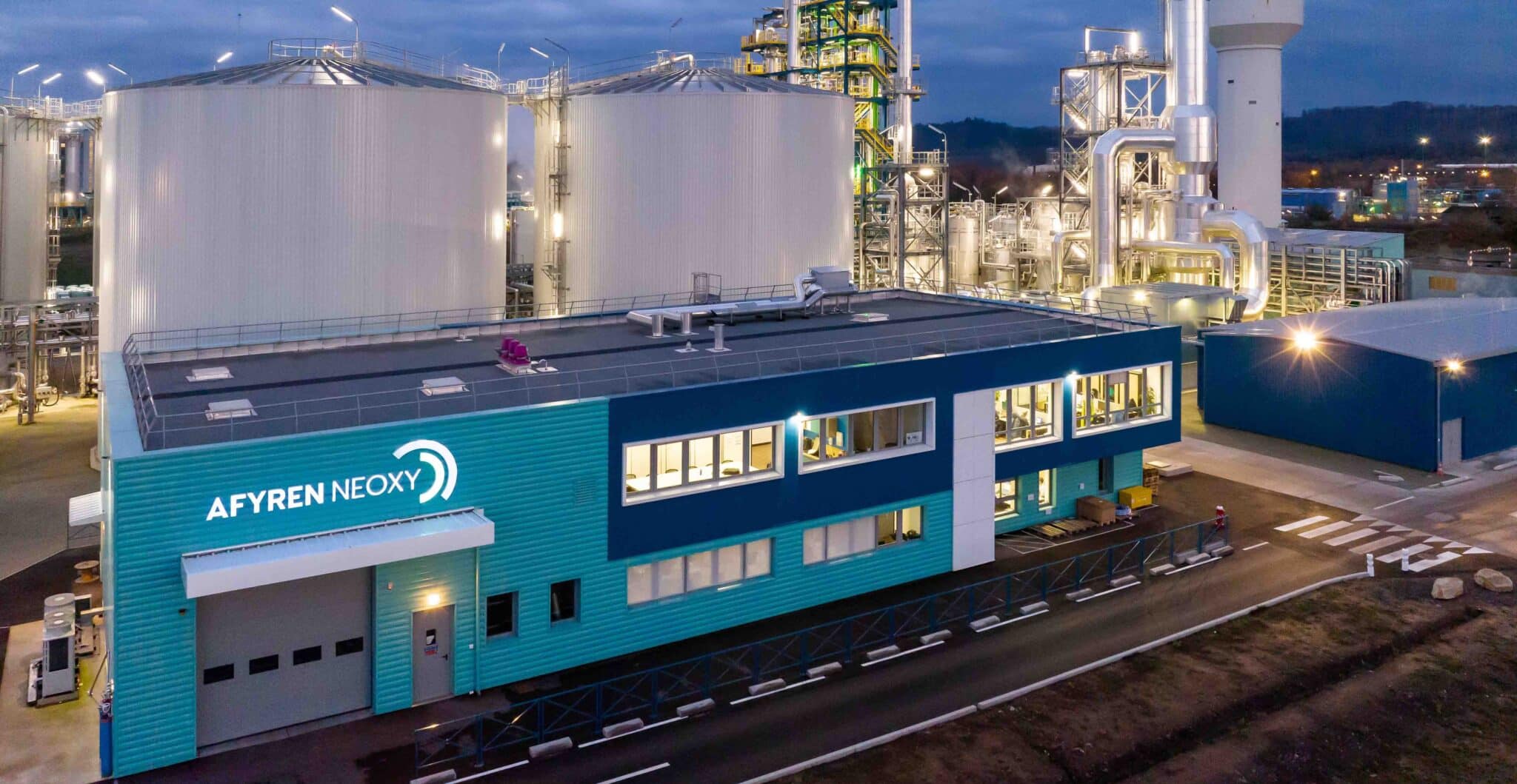Retour page d’accueil • #INSPIRINGTALKS – How the lubricant industry took action to lower its carbon footprint – A discussion with Apu Gosalia, also known as “The Sustainalyst”
#INSPIRINGTALKS – How the lubricant industry took action to lower its carbon footprint – A discussion with Apu Gosalia, also known as “The Sustainalyst”

Industrial lubricants: The greening of the industry
This is the first of two articles on the lubricants industry’s efforts to reduce its environmental footprint. It is largely based on an extensive interview with Apu Gosalia, a sustainability and strategy expert who was a driver of change in the industry when he served as Chief Sustainability Officer and VP Global Competitive Intelligence at FUCHS PETROLUB Group.

PART ONE: AN ECONOMIC CRISIS FORCED INTROSPECTION AND ACTION
Lubricants have been around for a long time — far longer than the petroleum industry. For thousands of years, humans have been using slippery stuff like olive oil, soaps and animal fat to reduce friction between surfaces that come into contact.
From sliding stones along oil-soaked wood to build the pyramids, to greasing the axels of horse-drawn carriages and hydro-powered flour mills, animal- and vegetable-based lubricants reduced wear and tear and increased the efficiency of many our contraptions, up to and through most of the First Industrial Revolution.
The extraction of petroleum began in the 1850s, fueling (and lubricating) the Second Industrial Revolution, also known as the Technological Revolution. Petroleum products enabled mass production via countless varieties of machinery and factories. Natural gas and oil supplemented coal as a source of heat and power. And petroleum-based lubricants supplanted their animal- and vegetable-based predecessors as refiners and chemists provided a dizzying range of products for every application imaginable.
Clearly, modern capitalism could not have developed so rapidly and become so efficient without petroleum-based industrial lubricants.
Of course, we all know the negative consequences of our industrial revolutions: Pollution in the air and water, and over the long term, climate change caused by the disproportionate emission of carbon dioxide into the atmosphere, increasing the greenhouse effect and resulting in global warming.
Does reducing friction alone make lubricants sustainable?
Lubricants enhance productivity, making our machines run longer and last longer, so the industry is, by its very nature, green.
Right? That argument has been used by the industry for a long time to preserve the status quo. Though it is still in use, it seems simplistic, antiquated — and just a little greasy.
Lubricants provide efficiency, but that is their job. Lubrication compounds and their ingredients can and should be made more sustainable, just like everything else.
Here’s an easy example: Plastic packaging is good at preserving food — preventing waste and greenhouse gas-producing rot, but we should still develop more sustainable, recyclable plastic.
For the lubricants industry, pressure to change came from big business
Big businesses usually like the status quo. Change is considered painful, unless it is immediately profitable. In most sectors, moves toward more sustainable practices have come only under pressure, and this pressure has usually come from the ground up — consumers, voters or politics.
The lubricants industry began its push toward sustainability more than a dozen years ago, pressured not so much by consumers at that time, but by big German companies, explained Apu Gosalia, the sustainability expert who was instrumental in the lube industry’s drive toward more sustainable practices, tools and ingredients.
The global financial crisis that hit Germany in 2008 made some of the country’s biggest companies realize that they needed to rebuild trust in the system, Gosalia said. More than 50 leading companies and industry organizations joined a pioneering effort led by the Wittenberg Center for Global Ethics called the Code of Responsible Conduct for Business Initiative.
“The big economic leaders in Germany came together and said, ‘we need to change the way how we do business’, Gosalia said. “There needs to be more awareness on antitrust, more governance, social principles — and there needs to be more sustainability. So that was one of the first starting points in Germany, where sustainability was introduced in a business context.”
The global financial crisis focused business minds on sustainability
The big German companies that signed the Code of Responsible Conduct for Business had a lot of influence, sitting on the supervisory boards of small- and medium-sized companies also operating in the lubricants industry.
They had the power to discuss key topics and brought the message that it would take integrity and ethics to rebuild trust.
Underlying this message was the notion that if they did not change, regulators would force change upon them.
Sustainability was part of this message, but crucially, the powerful board members emphasized that real action on sustainability could lead to cost savings and provide greater efficiency.
The lubricant companies, whose products promote efficiency and lead to cost savings for their end users, began to see the potential benefit of offering more sustainably designed, recyclable, earth-friendly products.
A business case was born.
An independent company lead an industry-wide effort
The board of Fuchs SE assigned Gosalia the task of exploring how sustainability would fit into the company’s business strategy and operations.
“We had committed to sustainability, but several things remained unclear at the beginning,” Gosalia said. “What does this mean for a lubricant company? What do we have to measure? What can we gain?”
His early pitch was to say that “if sustainability has three dimensions, economic, ecological, and social — I rather like to call it the ‘3 P’s: profit, planet, people’ —what do we have to measure on the ecological side and improve? What do we have to measure on the social side, and what are the economic sustainability factors for a company in the chemicals and lubricants industry?”
“The first efforts did not actually involve fundamentally changing anything. First, we needed to define the indicators and the measurements,” Gosalia said.
“So, I came up with the ‘3 M’s: What you cannot measure, you cannot manage. And what you cannot manage, you cannot modify.”
The sustainability strategy in the beginning was to look at the given processes along the entire value chain of the company and wherever possible adding sustainable components, e.g. in procurement, production, HR or sales.
After this first step, it quickly became clear to Gosalia that even if Fuchs was the largest independent lubricants provider, it could not go it alone and needed to find allies to share this mission. “It would have been useless to develop a sustainability strategy alone — what if everyone else runs in the other direction?”
Gradually, industry players came around to the idea that if the industry came up with its own benchmarks for sustainability, it would be less likely to have to submit to standards imposed by some EU regulatory body.
Gosalia took responsibility as co-founder and chair for both the Sustainability Initiative at the German Lubricants Industry (VSI) and the Sustainability Task Force at the Union of the European Lubricants Industry (UEIL).
He and like-minded allies set out to define some parameters that industry players could get behind.
In the years since the financial crisis, societal pressure and customer pressure have played increasing roles in pushing lubricant industry players to pay more attention to sustainability. A majority of lubricant companies rate the importance of sustainability as «high» or «very high,» according to a 2021 survey by the Union of the European Lubricants Industry.
Executives who took the survey were asked to list the drivers for implementing a sustainability strategy, and the top four listed were:
- Brand image
- Company ethos
- Regulation
- Customer pressure
More than 90% of those surveyed said sustainability would gain in importance in society over the next five years.
Getting suppliers involved in reducing carbon footprints
Gosalia pointed out that players in the lubricant industry are at the end of a very long value chain, so 90% of the carbon footprint of their products comes from ingredients bought from suppliers.
“We could optimize everything,” he said, “but at the end of the day we were only working on 10% of the impact; 90% comes from big vertically integrated base oil and additive suppliers. We needed to get our suppliers involved — and our customers.”
In an industry like this, picking the low-hanging fruit would not be enough to reach climate targets. Scope 3 emissions would have to be addressed.
Once you do the basic things in your own operations — reducing travel, renewable energy supplies,” he pointed out, “you need to look into the supplier side of your industry and say, ‘What kind of materials do we buy? Do we want to have other materials from our suppliers? Maybe more recyclable materials, or bio-based products and solutions’.”
In the lubricants industry, there always had been a business case to be more efficient, and companies have long sought to make their products recyclable, or at least safe at the end of their lives.
Now there was a case to change key parts of the value chain to avoid some of the carbon footprint associated with petroleum derivatives.
Synthetic lubricants recycled (re-refined) lubricants, and high-performance synthetic lubricants were part of this effort. But in recent years, bio-based products have gained ground as lubricant producers — feeling pressure from customers and regulators — prioritize sustainability and environmental responsibility.
Read Part 2: Amid growing pressure from all sides, the business case for sustainability comes into focus for the lubrication industry, and bio-based ingredients take on an important role. As with many big industry shifts, first movers reap rewards while laggards pay a steep price. with many big industry shifts, first movers reap rewards while laggards pay a steep price.
Last news

AFYREN receives €4 million in grants for AFYREN NEOXY and starts new performance-driven investment strategy
Press release
AFYREN begins new phase of industrial strategy as first plant AFYREN NEOXY achieves continuous production
Press release
Availability of preparatory documents for the Combined General Meeting on June 17, 2025
Press release
AFYREN achieves “Responsible Care® Confirmed Diagnosis” certification and publishes its second sustainability report
Press release
AFYREN and Südzucker celebrate 5 years of strategic bioeconomy partnership
Press release